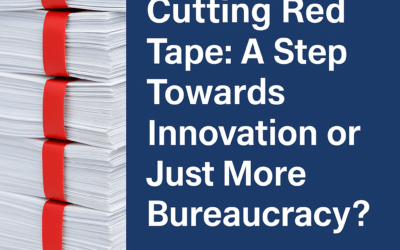
Firstly, I want to say how much I empathise with people who have or will find themselves out of work during this pandemic. Having spent my employed career mostly in sales-based jobs the vagaries of company policy about promoting different products and services can often lead to “restructuring” so I am all too familiar with that question hanging over your head “will there be a job next month?” I was once headhunted for a job, which turn out to be an exercise in plundering my contacts list, and the job I was recruited for didn’t actually exist – leaving me suddenly out of work.
Finding yourself in this position can trigger a lot of emotions: shock, anger, sadness, self-doubt and anxiety to name a few. When you lose your job, you have every right to feel seriously p**sed off, and you should give yourself time where you are allowed to feel upset about the situation. However, for me personally it was the loss of control over my life that bothered me the most. So, I thought I would write this blog about the things that helped me to regain control of my own situation, along with some general tips, to proactively improve your circumstances, rather than being a victim of them. My first employed role outside of a family business was working for the Employment Service, so some of this is from the years’ of advising people who came in.
If you suspect you are going to lose your job
There are a few things that you can do if you think that you are likely to become unemployed to prepare yourself, your family, and your finances. This should reduce the stress and anxiety both now, and in the future. Some of these tips work for everyone anyway as good habits, because when you have a decent income you want to be the ones benefiting from it.
- Spring clean your bank account – when you have a regular income it’s all too easy to sign up for all sorts of regular payments (gym membership, magazines, online subscriptions, mobile phone tariffs), check your statements, and all regular payments to be sure that you are only paying for things you actually need.
- Review your energy bill and check if you can get a cheaper tariff, or if you have repaid underpayments that hiked up your direct debit – I recently reduced my bill by £90 per month!!
- Review your mobile phone bill. Do you need to be on a tariff which gets you the newest phone every year (for example)? You will probably find that there are cheaper options.
- Do you really need your car? The cost of a car is for nearly all households second only to your spend on housing costs. I recently realised that, due to lockdown and all meetings moving online, I had reduced the miles I was driving from 1,000 per month to 100 miles in 6 months. Realistically I couldn’t justify the cost of a second car to look good on the driveway. I sold my car and haven’t missed it at all (this is coming from a petrol-head). If, in future, my work returns to face-to-face meetings I will buy another car – but right now it’s unnecessary.
- We’re coming up to Christmas. Try to lower expectations, especially if you are usually over-generous with friends and family. Even if you still have a job at Christmas, you don’t want to start an uncertain year with extra debt.
- I found when I was out of work that I spent more time cooking and preparing meals, which saves money on takeaways and ready meals is healthier and a positive thing to do.
- Write down your current income and outgoings, so you know what your budget is. If things are already tight and you are paying for a lot of credit there are a number of debt advice charities (e.g. www.moneyadvice.co.uk or www.stepchange.org). Get ahead of the situation before it gets worse, ring them, find out what your options are and take control.
- Once you know your budget, and have reduced unnecessary overheads you will have a better understanding of what jobs to apply for based on salary, better a lower wage and paying your bills, than no wage.
If you are out of work
When you have regular work, with a regular income and benefits it’s very hard to make a decision to follow your dreams or change career. The risk of losing financial security for yourself and your family is too high, so even if you fell into your current role, and it was never something you really wanted to do you’re stuck. Yes, being out of work sucks, but you are now free to look at wider opportunities. There might be a new career out there waiting for you, you could go to college or university, or what about starting your own business?
- Sign-on. Contact JobCentre Plus and make your claim. Payments are dated from the time you make your claim, so being proud and holding out until you run out of money, just makes you poorer. No one at the Jobcentre is judging you. It is not a personal failure. You pay for house insurance and car insurance, if you burnt your carpet or crashed your car you would claim wouldn’t you? Well, this is why you pay National Insurance so that you receive help when your are out of work or sick.
- Make a list of all the things you really enjoy doing
- List all the different skills you used in previous work e.g. negotiating, computer literacy, speaking to people on the phone, conflict resolution, staff management
- Now compare the two lists and think of roles that combine what you like to do with your skill set.
- Do you need any specific vocational qualifications? Now is a good time to sign-up for further education, or online training, you could qualify for a grant
If you are thinking of starting your own business:
- Contact you Local Enterprise Partnership and find out what funding and business support is available
- Some universities also offer brief courses and mentorship to support business start-ups
- Write a business plan. Decide what it is you want to do and start to break down the costs and practicalities – would you need premises? How will you find customers? Etc
- Don’t start spending money. Get as much free advice as possible, and only if you have a clear plan of action and realistic expectations of financial return do you spend anything. If you have any doubts about financial viability it is far cheaper to engage a consultant to find out if you could potentially make money, than it is to set up a business and fail.
- Make sure that your family are behind you, and that you have enough money to survive for 6 months without income – this is a big one. A large number of companies fail because they underestimate how long it takes to start generating income. Set-up costs are frequently more than expected, and time is the most costly thing – right now everything takes longer than you expect, especially any bureaucracy.
In short losing your job is the end of a chapter in your life, but the future is full of opportunities, and your next chapter may just blow your mind!
Best of luck, keep safe everyone.


